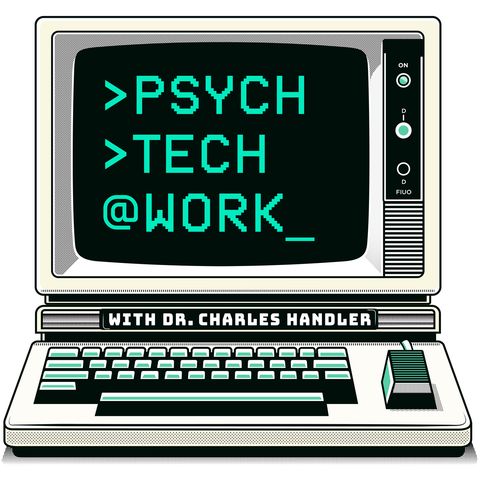Ethics by Design: Responsible AI is Blueprint, not a Band-aid

Sign up for free
Listen to this episode and many more. Enjoy the best podcasts on Spreaker!
Download and listen anywhere
Download your favorite episodes and enjoy them, wherever you are! Sign up or log in now to access offline listening.
Description
"This AI piece and all the ethics and governance and everything that goes around that... it really warrants a dedicated role and some specific communities focused on AI ethics and...
show moreBob Pulver: Founder of Cognitive Path
Summary:
My guest for this episode is Bob Pulver, a seasoned expert in the intersection of artificial intelligence and talent acquisition, bringing with him over two decades of experience from his tenure at IBM to the forefront of AI ethics and responsible implementation.
This episode not only provides valuable insights into the mechanics of implementing
responsible AI, but also frames a narrative that reveals the complexity and necessity of ethical AI practices in today's technology-driven hiring landscape.
Bob underscores the importance of ethical AI development, emphasizing responsibility by design, speaking to the need for a proactive stance in integrating AI into people practices. We both agree that compliance should not be a band-aid, or afterthought, but a foundational principle that begins with data acquisition and continues through to the implementation of AI-powered tools.
A big part of our conversation revolves around legislation related to the use of AI hiring tools, including New York City's Local Law 144. Bob provides advice to organizations on navigating its anti-bias legislation and the broader implications for global regulatory landscapes.
In sum, Bob and I both agree that responsible AI is not a game of short sighted interventions, but rather a transformative shift that affects every aspect of talent acquisition. We provide our ideas on how to navigate through this period of intense change, focusing on the practical challenges companies face, from internal upskilling to grappling with legislation that struggles to keep pace with technological advancements.
Takeaways:
- Start with a Foundation of Ethics and Responsibility: Implementing responsible AI requires building your technology on a foundation of ethical considerations. This involves considering the impact on protected groups, ensuring accessibility, and integrating privacy and cybersecurity measures from the beginning.
- Understand and Comply with Relevant Legislation: Staying informed about and compliant with anti-bias legislation, like New York City's Local Law 144, is crucial. This law requires annual independent audits for automated employment decision tools, ensuring they don't adversely impact protected classes.
- Adopt a Holistic Approach to AI Implementation: Responsible AI transcends legal compliance to include a broader ethical framework. It encompasses fairness, privacy, cybersecurity, and the mitigation of various risks, including reputational, financial, and legal.
- Engage in Continuous Education and Upskilling: All stakeholders, regardless of their role, need to be educated about the ethical implications of AI. This includes understanding how to acquire and test data to mitigate bias and ensure the responsible use of AI technologies.
- Foster a Multi-Stakeholder, Cross-Disciplinary Dialogue: Creating solutions that are both innovative and responsible requires input from a diverse group of stakeholders. This includes technical experts, ethicists, legal teams, and end-users to ensure cognitive diversity and address the ethical, cultural, and practical aspects of AI.
Prepare for an AI-Driven Transformation: Recognizing that AI transformation affects every aspect of an organization is essential. This realization should drive a commitment to responsible AI practices throughout the organization, from product development to deployment.
Information
| Author | Charles Handler |
| Organization | Charles Handler |
| Website | - |
| Tags |
-
|
Copyright 2024 - Spreaker Inc. an iHeartMedia Company
